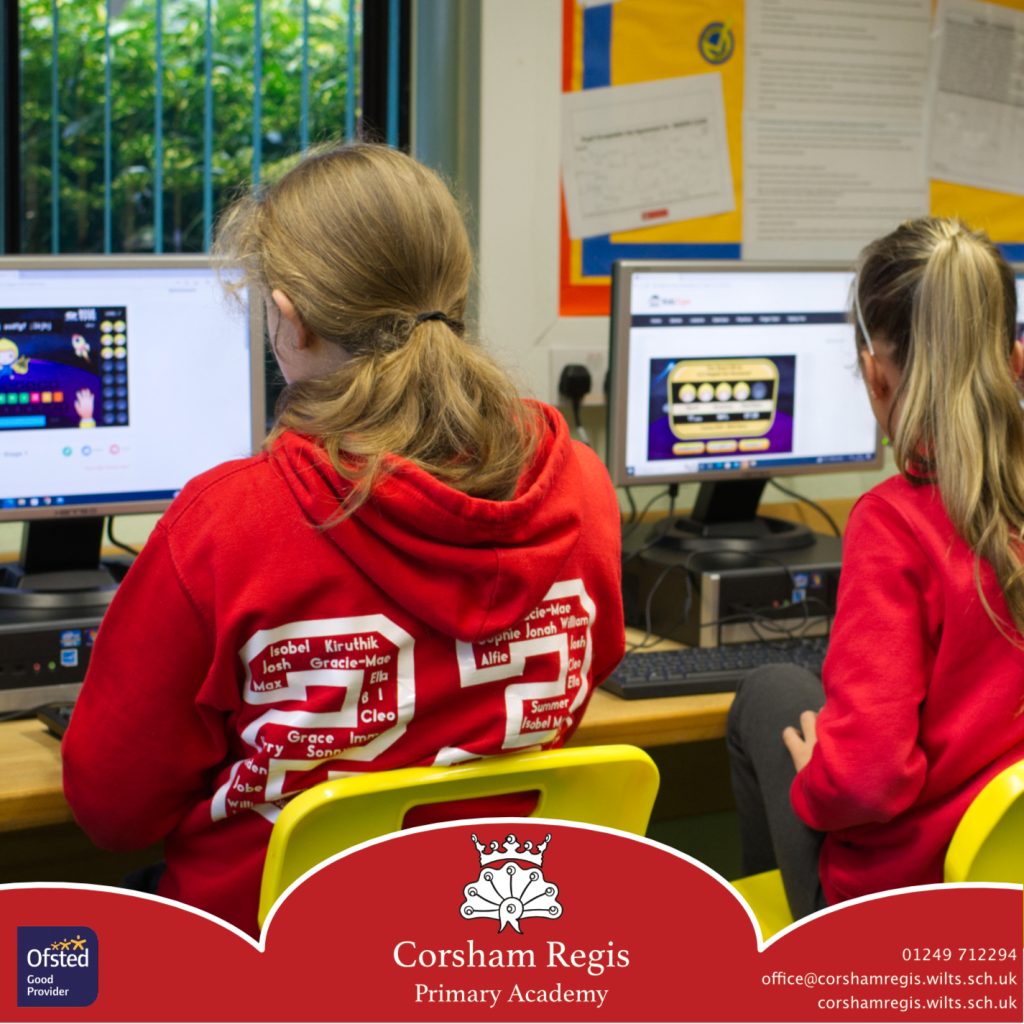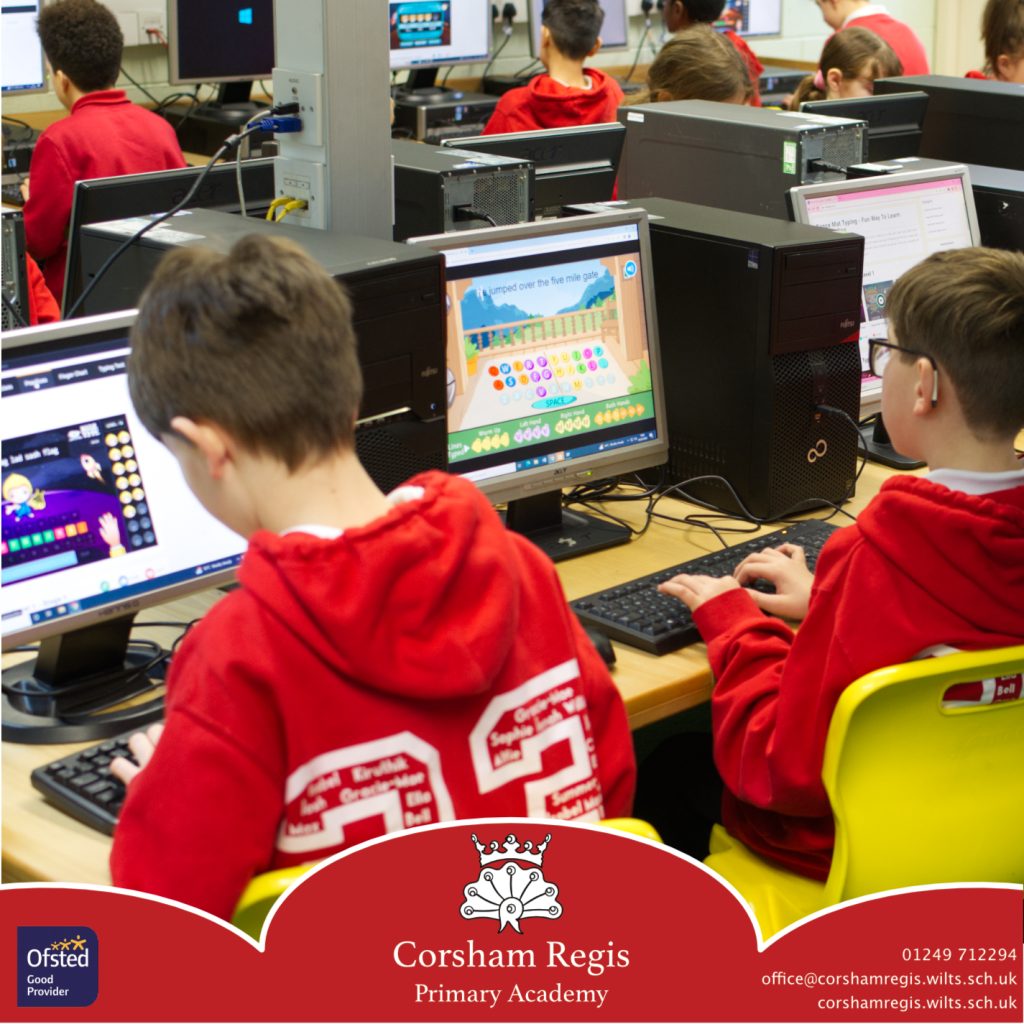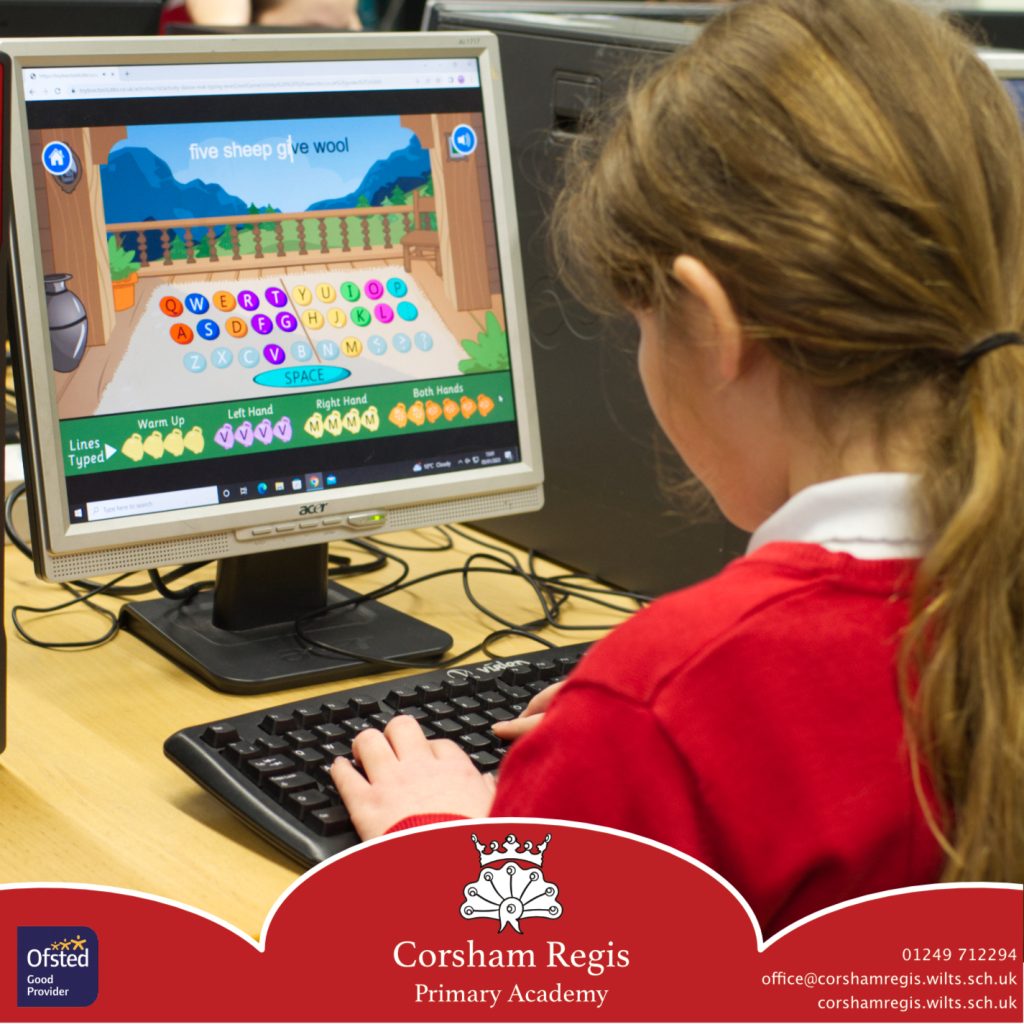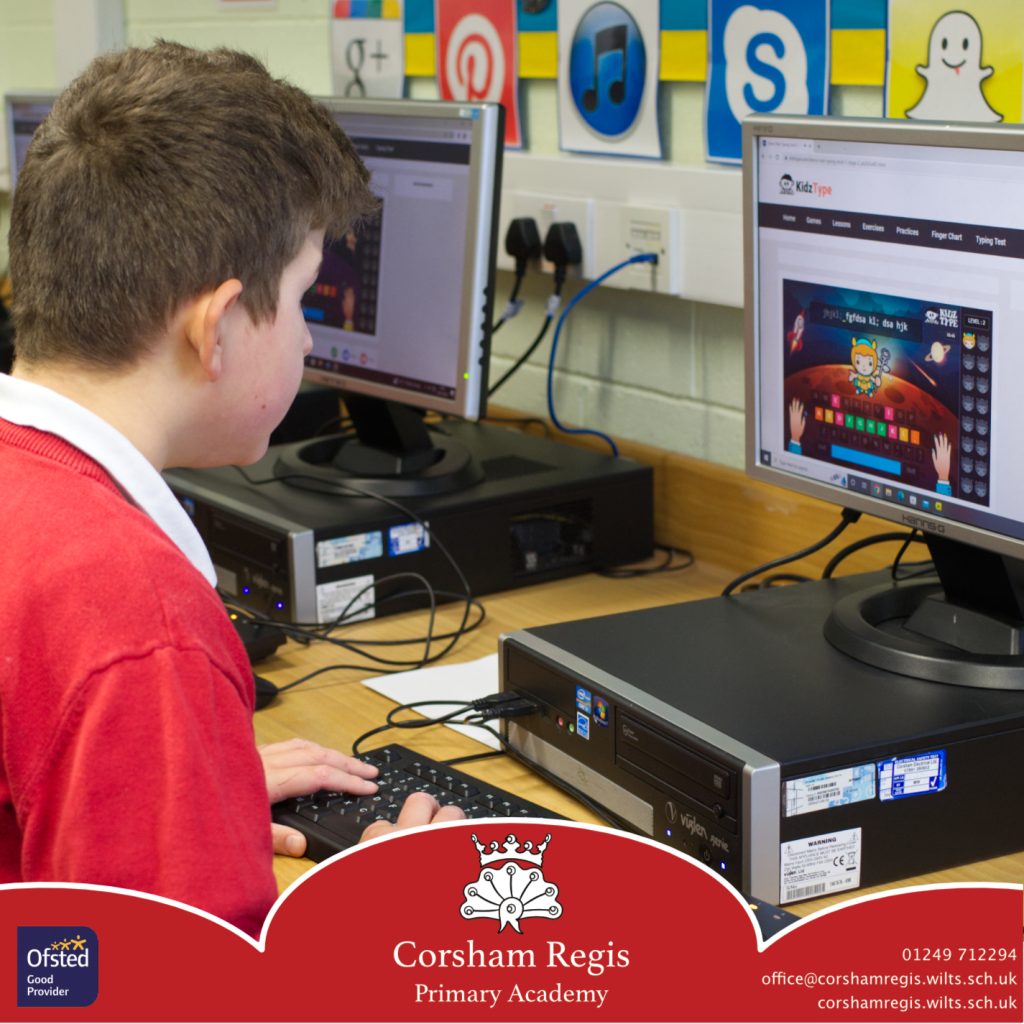Computing
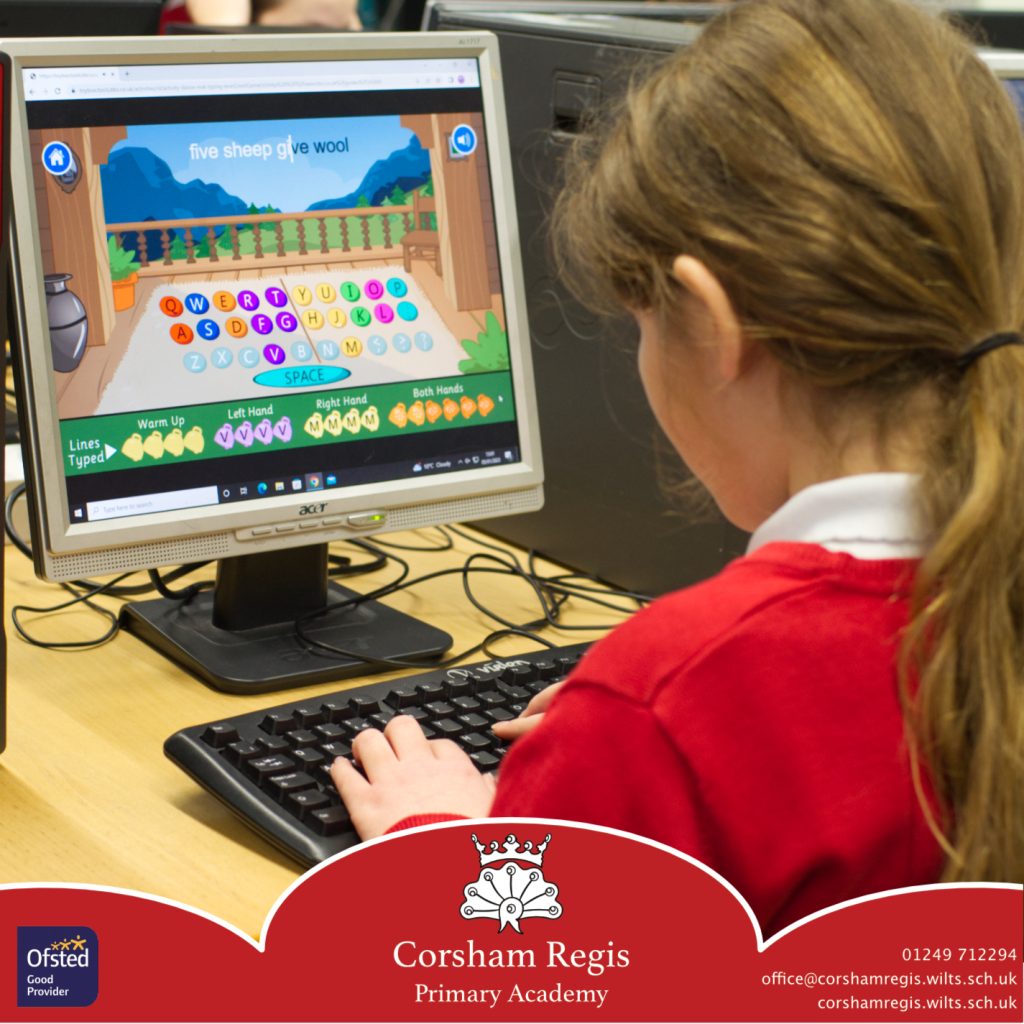
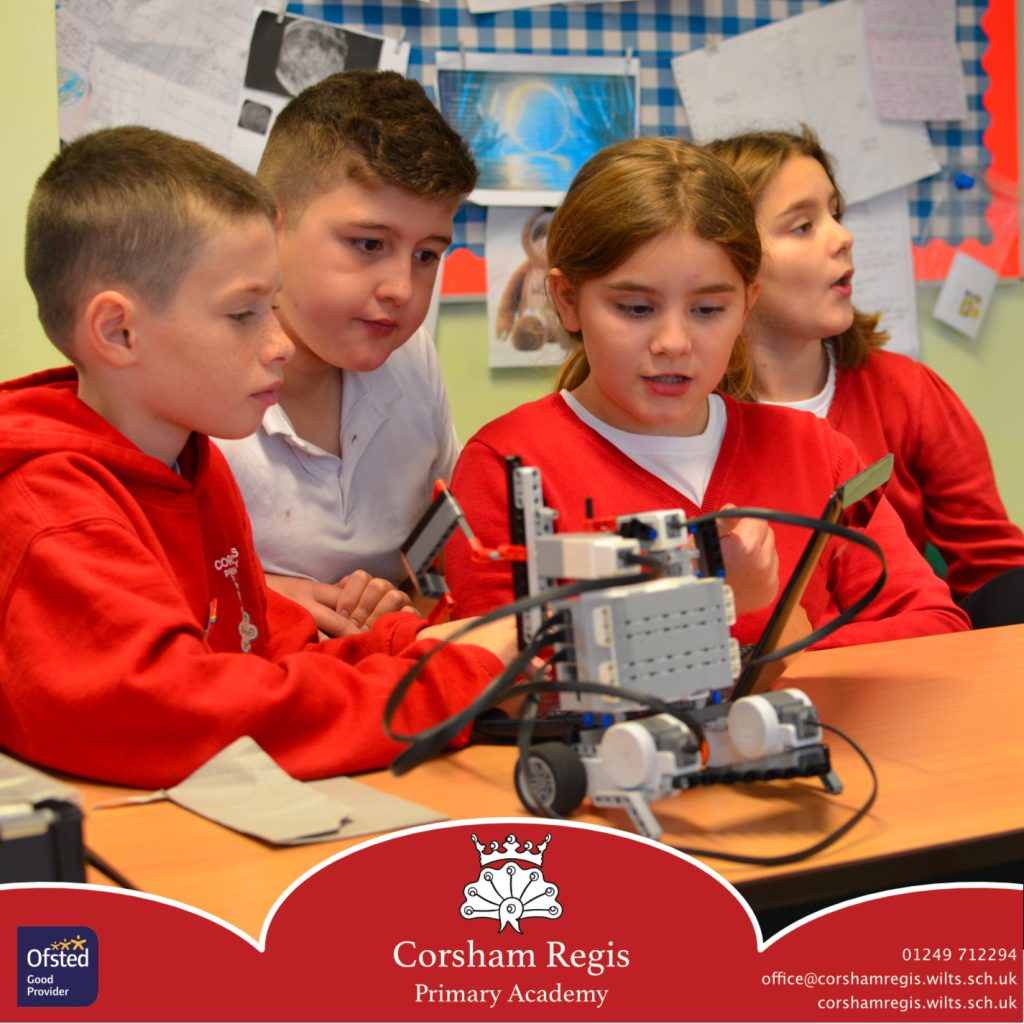
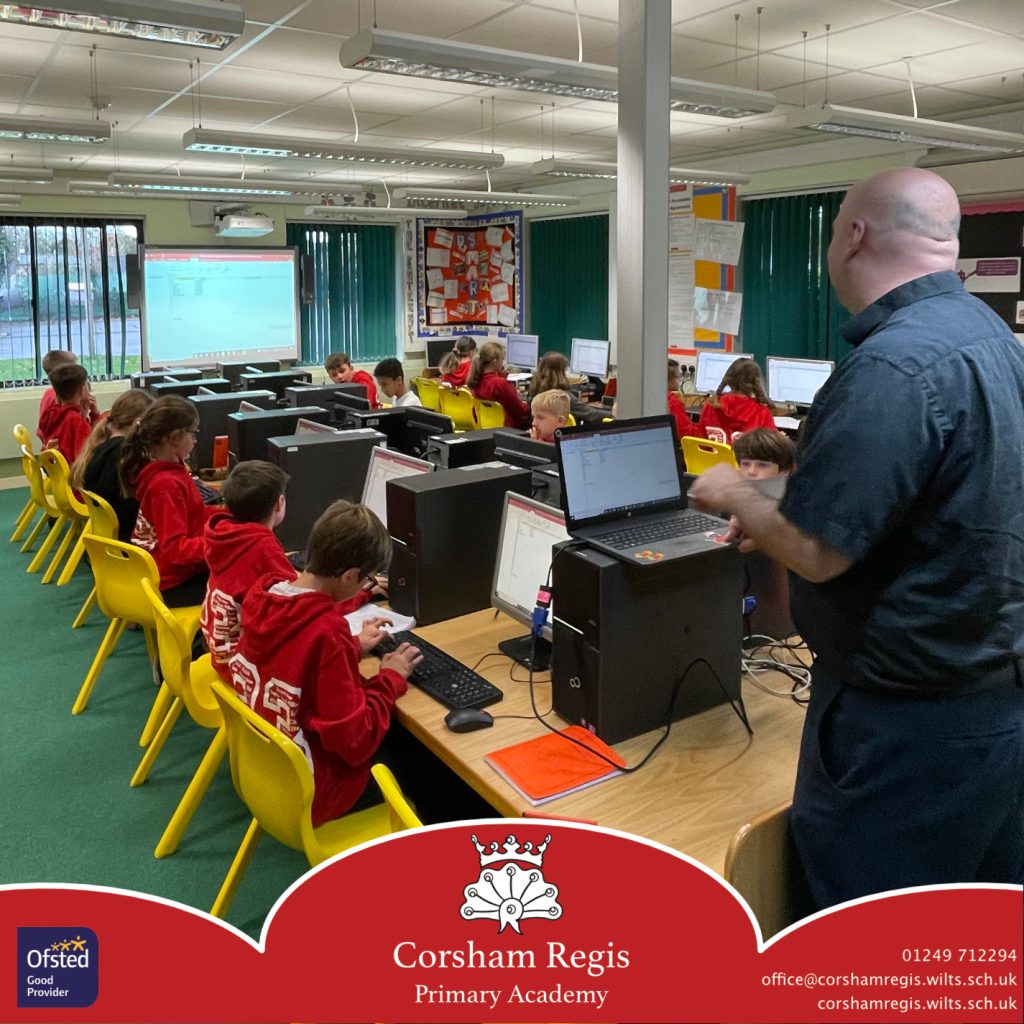
Our Curriculum intent at Corsham Regis is embedded in the computing skills we teach our pupils and the ways in which we use technology to support their learning in other subject areas.
How to communicate using appropriate vocabulary
Computers are now part of everyday life. ‘Computational thinking’ is a skill children must be taught if they are to be ready for the workplace and able to participate effectively in this digital world.
Talk, through discussion, forms the basis for much learning at school and computing is no different. During every lesson, children are given the opportunity to talk about what they are doing, and the skills and knowledge they are learning. They are introduced to the technical vocabulary of computing hardware and software, and the internet world, including reference to the latest slang used in social communications.
About Corsham and the local area
During our local area studies, children make use of computing to research information about Corsham and the surrounding area. They are able to communicate their learning digitally using different media. Google Earth allows them to gain a visual understanding into the physical variation between town, county, country and the world. Online tours give them the opportunity to explore local places such as the Roman Baths and look at historical evidence, while present online maps allow them to compare the local environment now and in the past.
Through experience inside and beyond the classroom
Virtual technology allows children to see, explore and even “visit” places outside the classroom that the children would not otherwise see. During our geography topics, children have used Google Earth to see the physical and human landscapes of other countries, towns and cities. They can research places which they could not possibly travel to and experience the sights, sounds and atmosphere of places in the present and even in the past. This helps to bring our topics alive and helps to give them an experiential learning which would not be possible without the use of modern technology.
New knowledge and understanding appropriate to their age
Teachers follow the National Curriculum for Computing and the Early Learning Goals for Early Years Foundation Stage. Chris Quigley’s Essential Milestones are taught progressively through each year group using a range of communication, coding, data collection and presentation software and hardware. This ensures children add to, and build on, their learning and skills year on year.
How to keep themselves safe
Teaching children about E-safety / Online Safety is an important part of primary education and a compulsory objective in the National Curriculum. Children are taught how to keep digitally safe, what to do if they suspect something is not safe or not what it seems, and the importance of not sharing personal information. They learn how to be digitally responsible citizens and are taught about the dangers of online bullying as well as the importance of posting things online in a sensitive and respectful manner. This learning is taught explicitly through discrete “internet safety” lessons in class and incidentally through reference to safe internet use throughout all computing lessons. Termly assemblies on digital safety also ensure that it is at the forefront of children’s minds.
Corsham Regis also helps to educate the parents & carers about the risks of modern technology and the importance of age appropriate exposure for the children. Communications about how to stay safe are regularly posted online and families are directed to these.
Examples of Computing cross curricular learning
